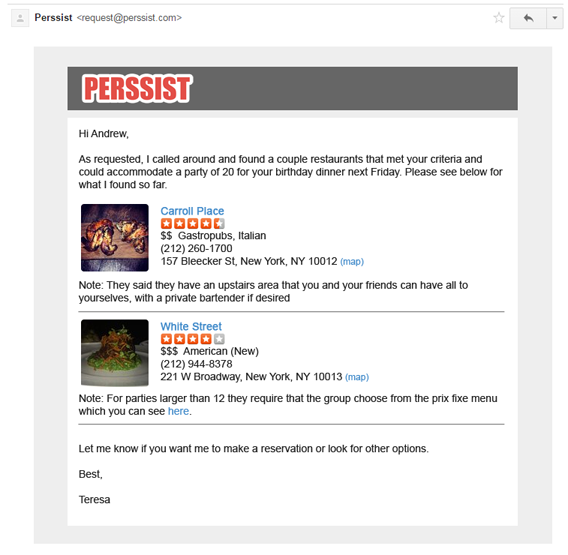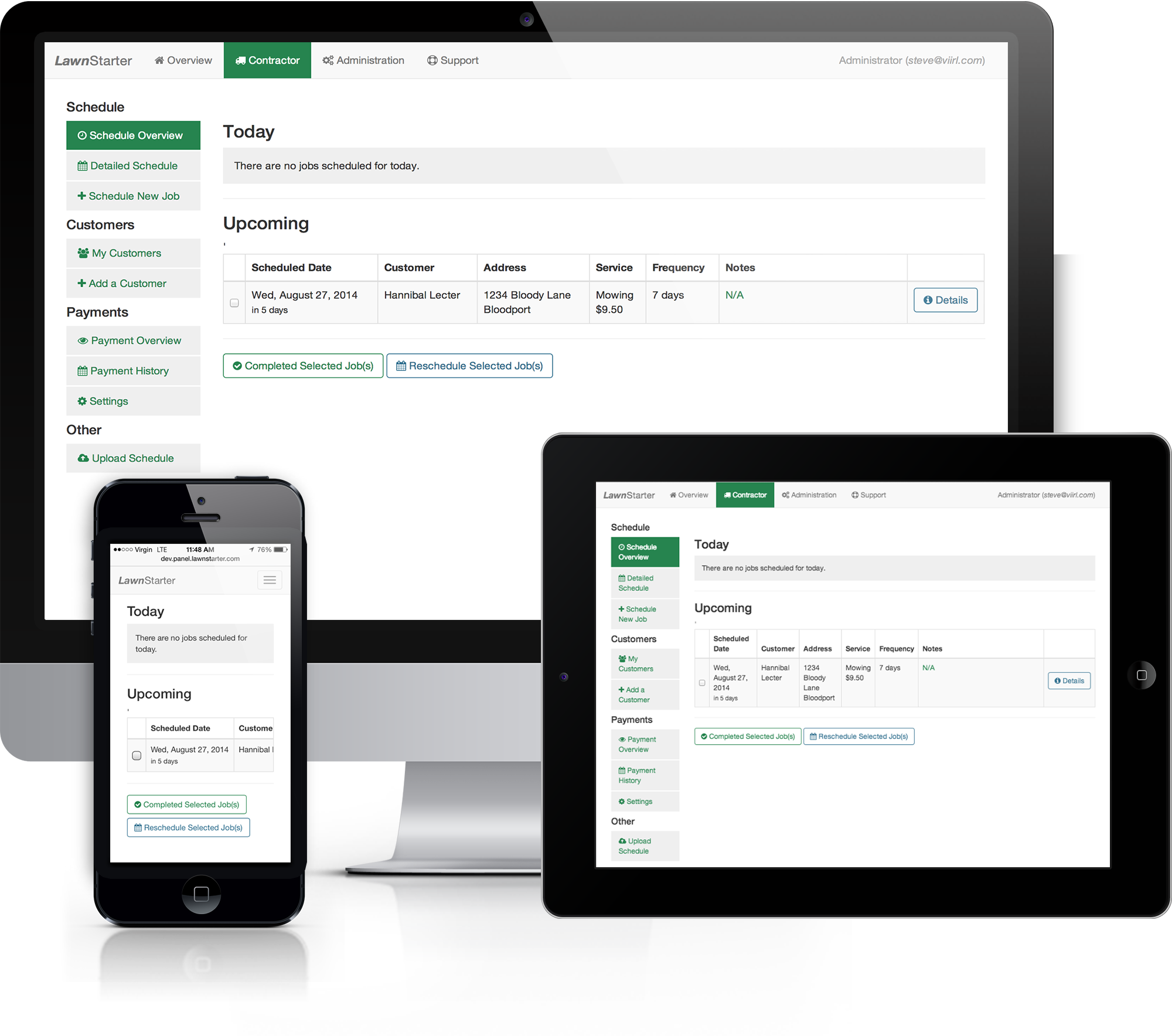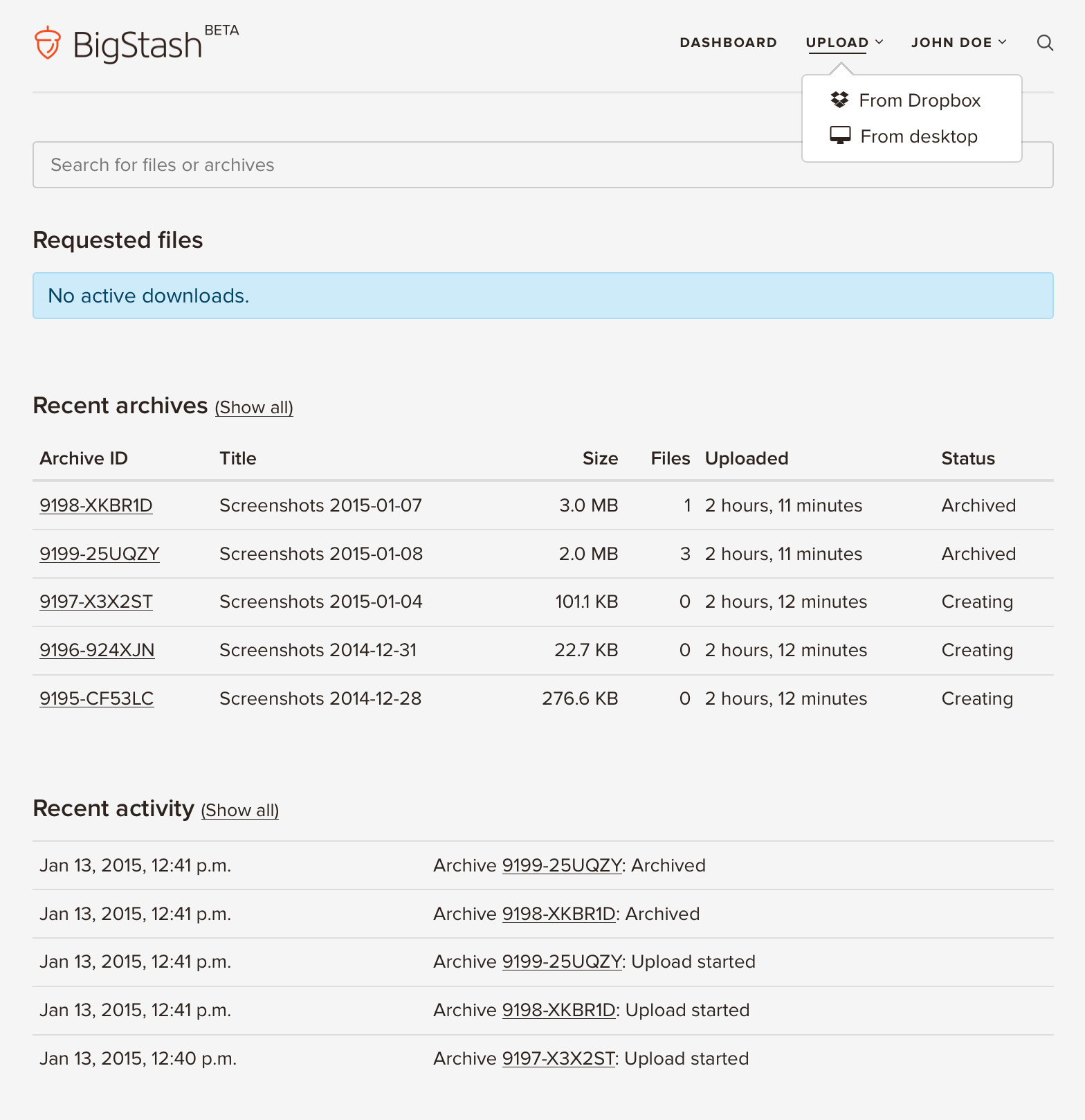 A Q&A with Perssist co-founder Evan Britten-Bozzone. The New York City-based startup, which offers an on-demand virtual personal assistant service, launched to the public on Monday. It was founded last summer by Britten-Bozzone and Albert Wang, and has been bootstrapped to this point.
A Q&A with Perssist co-founder Evan Britten-Bozzone. The New York City-based startup, which offers an on-demand virtual personal assistant service, launched to the public on Monday. It was founded last summer by Britten-Bozzone and Albert Wang, and has been bootstrapped to this point.
SUB: Please describe Perssist and your primary innovation.
Britten-Bozzone: Perssist is an innovative, tech-first virtual assistant startup that uses great assistants supported by proprietary technology to allow anyone to outsource time-consuming and undesirable tasks from their to-do lists. We’re using technology to make outsourcing everyday personal tasks much more accessible. Users can submit requests via the web, email, phone, and a mobile app is in development. Over time, Perssist learns user preferences and becomes more integrated into users’ daily routines.
SUB: Who are your target markets and users?
Britten-Bozzone: We are targeting busy people and entrepreneurs who may or may not have used an assistant in the past. Our goal is to make personal outsourcing so easy and accessible that it becomes common practice for people to delegate tasks from their to-do lists.
SUB: Who do you consider to be your competition, and what differentiates Perssist from the competition?
Britten-Bozzone: Our focus on technology differentiates us from other players in the virtual assistant space by improving the user experience while remaining highly affordable. Users submit requests through a few convenient channels, our tech analyzes each incoming request to get it started on the right track, and we learn about our users over time to help personalize the service. All your tasks are easy to stay on top of, and our app integrations help us work directly with the tools you’re already in the habit of using.
SUB: You just launched to the public. Was this a launch out of beta? Why was this the right time to launch?
Britten-Bozzone: Perssist had been testing and improving the service with a small group of users prior to its public launch. We were done testing the various initial technologies we built and we were happy with the consistent level of service quality, so it was time to bring in outside users.
SUB: Have you raised outside funding to this point?
Britten-Bozzone: We have not raised any outside funding at this time.
SUB: What was the inspiration behind the idea for Perssist? Was there an ‘aha’ moment, or was the idea more gradual in developing?
Britten-Bozzone: It was more gradual. I started exploring the virtual assistant space after I noticed enough people around me wishing they didn’t have to deal with one task or another. These were the types of task any smart, Internet-savvy person could take care of with a computer and a phone. After testing interest in, and reactions to, various business models, I found my way to the current Perssist model.
SUB: What were the first steps you took in establishing the company?
Britten-Bozzone: I built websites for several variations of virtual assistant business models, drove traffic to those sites, and figured out what people liked and didn’t like about them. This helped me iterate to the current business model for Perssist.
SUB: How did you come up with the name? What is the story or meaning behind it?
Britten-Bozzone: ‘Perssist’ is a portmanteau of ‘personal’ and ‘assistant.’
SUB: What have the most significant challenges been so far to building the company?
Britten-Bozzone: High quality assistants are the core of our service, and it’s been a challenge to recruit and train great assistants while keeping costs down for our users. For every 100 people that enter our recruiting process, we hire less than three, and only after that do they get to go through our intensive training process before interacting with any Perssist users.
SUB: How do you generate revenue or plan to generate revenue?
Britten-Bozzone: Our subscription plans provide increasing levels of support via blocks of time credit. Time is charged in five minute increments, and 100 percent of unused time rolls over each month. There is also a pay-as-you-go option if a user isn’t ready for a subscription.
SUB: What are your goals for Perssist over the next year or so?
Britten-Bozzone: Over the next year we want to roll out a number of third-party app integrations, ramp up hiring, release the mobile app, and continue to develop our request-handling tech to increase response times, quality, and to help users get more out of the service.














